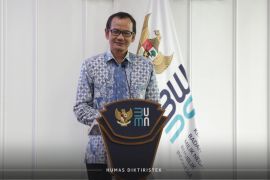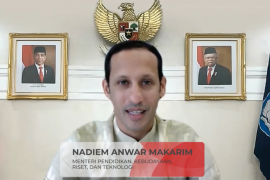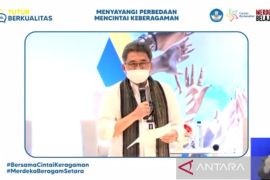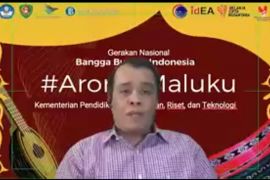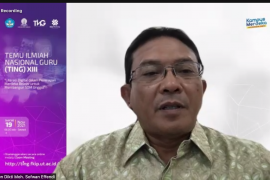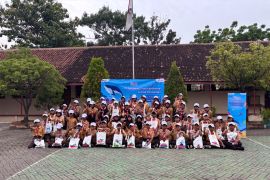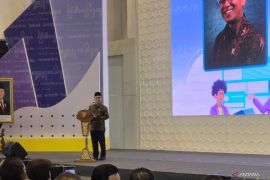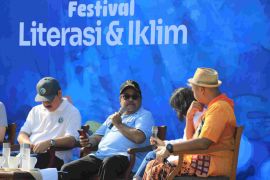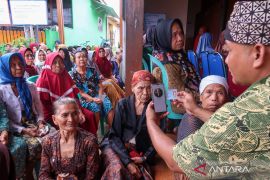“In order to strengthen life skills, literacy is not only about dealing with the ability to recognize letters, numbers, pictures, or sounds but also related to the ability to analyze, synthesize, judge, and create. It is this creative ability that we hope all our children would have because creativity is always limitless," Head of the Language Development and Coaching Agency of the Education, Culture, Research, and Technology Ministry, E. Aminudin Aziz, noted in a written statement here on Wednesday.
Azis remarked that the level of literacy in Indonesia was still relatively low. Thus, the ministry, through its Language Development and Coaching Agency, had initiated a literacy program since 2016 by launching various programs, including the National Literacy Movement, he added.
Schools, communities, and families are targeted through such programs. The program has raised awareness from ministries, agencies, and the public that everyone must possess literacy skills, considered to be the most basic and essential ability in order to lead a good life.
Meanwhile, Franka Makarim, adviser of Dharma Wanita Persatuan (DWP), the organization of the wives of employees of the Education, Culture, Research, and Technology Ministry, stated that reading was very important for children. It will provide knowledge, and it can also build character.
“Building reading habits in the family, especially in the midst of the rapid development of social media, (will meet its challenges, such as how) children are often more interested in using gadgets than reading books. However, it is possible to build a strong ecosystem in the family, though the key lies in us as parents,” she remarked.
Related news: Jakarta Literacy House to become hub for book lovers
Makarim listed two crucial aspects to develop literacy skills in children, with the first being to provide a variety of reading options at home and allowing children to choose the books they like.
“We need to give freedom to our children in making (their) choices but under our supervision. This is because if parents force what books are to be read, it would be impossible for any love or interest to be developed in our children,” she emphasized.
Makarim also noted that encouraging children to talk and discuss about the books they were reading or had read could boost their ability to process the information and express their opinions.
Makarim highlighted that the family played a strategic role in boosting children's literacy. The family is the first and foremost institution that would instill knowledge for the child's success in future.
Chairperson of DWP, Erni Tjahyo Kumolo, stated that parents had played ever increasingly roles currently, as compared to the time before pandemic.
“Slowly, parents are starting to recognize teaching methods and are more concerned about educational issues than before," Kumolo stated.
Related news: Labuan Bajo: Askrindo launches smart car library to boost literacy
Translator: Indriani, Mecca Yumna
Editor: Rahmad Nasution
Copyright © ANTARA 2021


